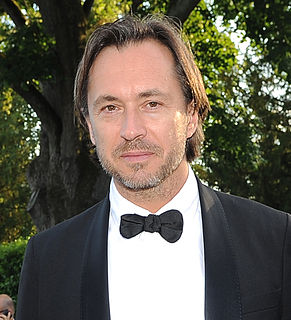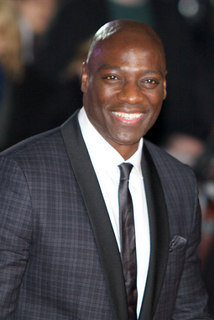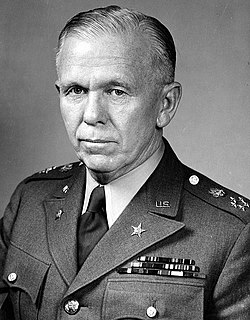A Quote by Irwin Shaw
Horror would not annoy a soldier any more than the sight of a hammer annoys a carpenter. It is sentimental to pretend that horror is not the tool of the soldier, just as the hammer is the tool of the carpenter. We live off death and the threat of death and we must take it calmly and use it well.... Eventually I came to enjoy killing, as a pianist enjoys the Czerny which keeps his fingers limber for the Beethoven.
Related Quotes
Personally, I think government is a tool, like a hammer. You can use a hammer to build or you can use a hammer to destroy; there is nothing intrinsically good or evil about the hammer itself. It is the purposes to which it is put and the skill with which it is used that determine whether the hammer's work is good or bad.
I grew up on all sorts of horror - Hammer Horror and Vincent Price's 'Theatre Of Blood.' I loved the hidden, scary layers, but there wasn't that much around for youngsters in terms of horror books. I can remember reading Stephen King's 'Salem's Lot' and 'Cujo,' but I thought there should be more for teenaged horror fans.
[British television series] Hammer House of Horror. I used to really enjoy these one-off stories where often there would be an incredibly cruel twist. A good example is the episode with Burgess Meredith and there's a nuclear war and he drops his glasses. To this day, you can show that to anyone and they'll go "Bwrrrrrrrr!" You know, sort of wander away shuddering.
In a sense, every tool is a machine--the hammer, the ax, and the chisel. And every machine is a tool. The real distinction is between one man using a tool with his hands and producing an object that shows at every stage the direction of his will and the impression of his personality; and a machine which is producing, without the intervention of a particular man, objects of a uniformity and precision that show no individual variation and have no personal charm. The problem is to decide whether the objects of machine production can possess the essential qualities of art.
One of the best things I ever did was to train in a practical skill. I love computers and they've become such a part of life, especially to the world of design. But it's important to understand that they are a tool, as much as a hammer or a saw is a tool. Computers don't help you design. There needs to be more emphasis on training young designers in how to build things. A good writer needs a good vocabulary. A good designer needs to understand his materials and processes. You can't, as a successful designer, pretend to get any respect if you don't know how things are made.
A painter will paint a cobbler, carpenter, or any other artist, though he knows nothing of their arts; and, if he is a good artist, he may deceive children or simple persons, when he shows them his picture of a carpenter from a distance, and they will fancy that they are looking at a real carpenter.
As a horror movie fan, I was very obsessed with horror films. Still am. I love the genre. For me, horror films are opera, and they are... instead of consumption killing off the young lovers, it's Jason Voorhees or Michael Myers. It is when the stakes are at their absolute largest in a story: whether somebody is going to live or die. In a way, it's just holding up a mirror to life.
I yearn for the darkness. I pray for death. Real death. If I thought that in death I would meet the people I've known in life I don't know what I'd do. That would be the ultimate horror. The ultimate despair. If I had to meet my mother again and start all of that all over, only this time without the prospect of death to look forward to? Well. That would be the final nightmare. Kafka on wheels.
Horror grows impatient, rhetorically, with the Stoic fatalism of Ecclesiastes. That we are all going to die, that death mocks and cancels every one of our acts and attainments and every moment of our life histories, this knowledge is to storytelling what rust is to oxidation; the writer of horror holds with those who favor fire. The horror writer is not content to report on death as the universal system of human weather; he or she chases tornadoes. Horror is Stoicism with a taste for spectacle.







































